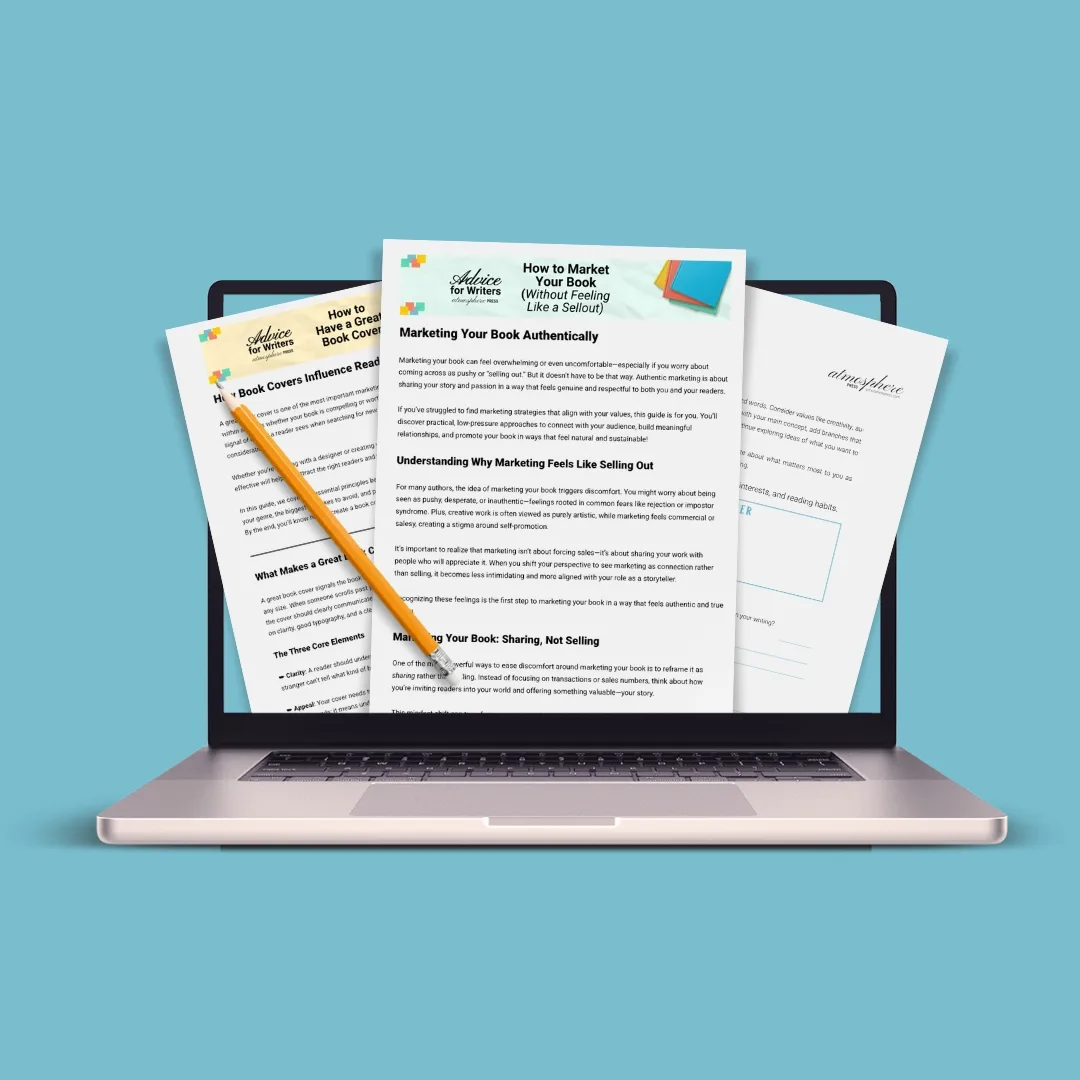If you’re exploring hybrid or self-publishing options, Atmosphere Press vs. Archway Publishing is a comparison worth considering. Both offer alternatives to traditional publishing, but they differ in approach, cost, author experience, and community engagement.

Guidance for your writing journey
Your Advice for Writers resource articles.
Your Advice for Writers resource articles.
Writing a book comes with questions, challenges, and moments of doubt, but you don’t have to navigate them alone. The Advice for Writers resource articles break down the writing, publishing, and promotion process into clear, approachable guidance, so you can focus on telling your story with confidence.

Atmosphere Press Acceptance Standards
Every month, Atmosphere Press receives more than 1500 submissions! That’s a lot. And we ultimately move forward with roughly 30 publishing contracts per month. Obviously, it’s a mutual decision to move forward on a contract, because we need to want to work with an author and an author needs to want to work with us.
Navigating the Indie Bookstore Landscape: A Guest Post by Vicky Pinpin-Feinstein
Vicky Pinpin-Feinstein is a former college lecturer, communications technology and society professional, and a writer. With Social Science graduate degrees, her career focused on media and society at various institutions before she became a writer. Her first book, A Thousand Little Deaths, is an account of her experience under the autocratic rule of Ferdinand Marcos in the Philippines. Her second and recently published book, Beyond Fear and Suspicion: The New Americans in Little Ethiopia, focuses on forced migration, immigrant identity, trauma, and resilience among members of the African diaspora.
5 Common Challenges with Book Publishing
Publishing a book is one of the most rewarding yet challenging experiences an author can undertake. From polishing a manuscript to navigating the intricacies of the publishing world, writers often face hurdles that can feel overwhelming at times. Whether you’re aiming for a traditional publishing deal or exploring self-publishing, the process comes with unique obstacles that can impact your timeline, budget, and overall success.
If you’re exploring hybrid or self-publishing options, Atmosphere Press vs. Mascot Books is a comparison worth exploring. While both publishers offer alternatives to traditional publishing, they differ in approach, cost, and the author experience they provide.
How to Get Book Reviews Before Publishing
Getting book reviews before publishing is one of the most important steps you can take to set your work up for success. Reviews act as social proof, showing potential readers that your book is worth their time! They can also help your book stand out in crowded marketplaces like Amazon or Goodreads and give you valuable feedback before your official launch.
How Atmosphere Press Assists with Author Branding
Building a strong author brand is more than a logo or a social media profile—it’s how readers recognize, connect with, and remember your work! At Atmosphere Press, we know that creating a consistent and compelling author identity is essential for establishing credibility and growing a loyal audience.
If you’re exploring hybrid or self-publishing options, Atmosphere Press vs. BookBaby is a comparison worth exploring. While both publishers offer alternatives to traditional publishing, they differ in approach, cost, and the author experience they provide.
Explaining the Role of a Developmental Editor in the Publishing Process
Unlike a copy editor who focuses on grammar or a proofreader who catches typos, a developmental editor works at the big-picture level. Their role is to strengthen your manuscript’s structure, pacing, character development, and thematic clarity so that the story resonates with readers and meets the expectations of your genre.
If you’re weighing hybrid publishers, two names you’ll inevitably see are Atmosphere Press and Greenleaf Book Group. Both are reputable and both serve authors who want more than the do-it-yourself route — but the experience, cost structure, and community offerings are very different.










